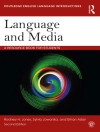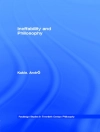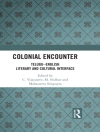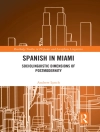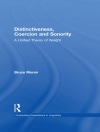This volume addresses the question ‘What role does religion play in the maintenance, revival and/or shift, of languages?’ The chapters in this volume explore the complex and dynamic relationship between religion and the maintenance, revival and/or shift of languages in different multilingual multicultural contexts, under diverse sociopolitical conditions, at different points in time. The 12 chapters cover data from Algeria, India, Israel, Malaysia, Nigeria, Singapore, UK, USA and Uganda and discuss the impact of context, ideology, identity and education on the following religions: Buddhism, Christianity, Hinduism, Islam, Judaism, Sikhism, and some religions closely associated with China such as Confucianism and Taoism, and their respective languages and varieties of language in these regions. The languages discussed by the writers in this volume include Arabic, English, Hebrew, Malay, Mandarin, Portuguese, Punjabi, Pali, Sanskrit, Tamazight and Yoruba.
Tabla de materias
Chapter 1. Rajeshwari V. Pandharipande, Maya Khemlani David, and Miriam Eisenstein Ebsworth: Introduction
Chapter 2. Phyllis Chew: The Decline of the Vernacular in the Chinese Religion in Singapore
Chapter 3. Andrey Rosowsky: Singing in My Language(s): How Religious Verse and Song Contribute to Minority Language Maintenance
Chapter 4. Yurni Said Sirhan: The Role of Islam in the Language Maintenance of the Malay Muslims in Singapore
Chapter 5. George Ladaah Openjuru: The role of Religion in Written Language Maintenance and Shift in Uganda
Chapter 6. Ana Souza: Faith and Language Maintenance in Transnational Places of Worship: Brazilian Christian Settings in London
Chapter 7. Sheena Kaur and Maya Khemlani David: Language Shift but Religious Maintenance: A Study of the Punjabi Sikh Community in Petaling Jaya, Selangor, Malaysia
Chapter 8. Rajeshwari V. Pandharipande: Does Religion Promote as well as Retard Language Maintenance in a Multi-lingual Context?: The Case of Hinduism
Chapter 9. Bernard Spolsky: Religion and Education in the Preservation of Hebrew and Other Jewish Language Varieties
Chapter 10. Muhammad Amara: The Role of the Islamic Movement in Maintenance of Arabic in Israel
Chapter 11. Miriam Eisenstein Ebsworth, Scott Goldberg and Tristin Wildstein: Development of Hebrew/English Biliteracy in a Jewish Day School: Issues of Language and Identity
Chapter 12. Oladipo Salami: Islamic Religious Education, Identity and the Arabic Language among University Students in Southwestern Nigeria
Chapter 13. Hind Amel Mostari: Religion and Algerian Languages in the Education System
Epilogue: James Mc Lellan
Sobre el autor
Miriam Eisenstein Ebsworth is Associate Professor in the Department of Teaching and Learning, NYU Steinhardt, USA.


